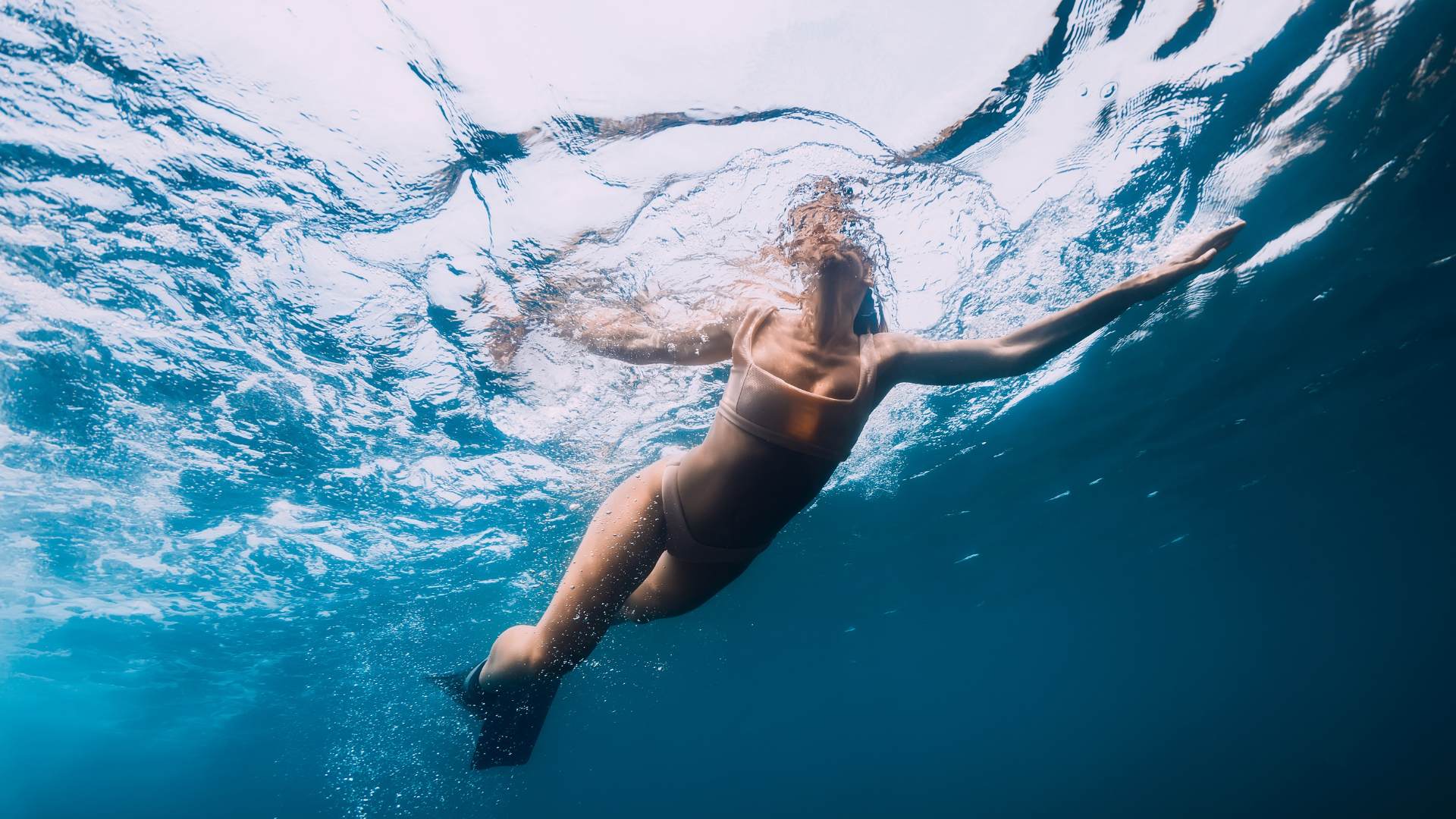
How long after a tattoo can you swim?
A new tattoo requires a pause in your swim plans since fresh ink must heal. Water exposure can cause infections and damage your artwork.
Quick links:
Why you shouldn’t swim with a new tattoo
How to protect your tattoo while swimming
Let’s learn how long after you get your new tattoo you have to wait until you can enjoy your favorite water activities again.
Why you shouldn’t swim with a new tattoo
A fresh tattoo is like a fresh wound; your skin needs time to repair itself. Swimming too early jeopardizes your healing tattoo and overall health.
Water contamination
Pools contain harsh chemicals that irritate your tattooed skin, while natural bodies of water harbor bacteria. Both scenarios put you at risk for nasty infections that could damage your body art.
Ink damage
Extended periods in water soften your scabs. This leads to faded or patchy areas in your design. Larger tattoos face an even higher risk of damage.
Healing interference
Exposure to water disrupts your skin's natural healing process. Your healing skin becomes vulnerable to irritation and infection, especially during long pool times.
Infection warning signs
If you notice these warning signs while your tattoo healing time progresses, contact your doctor immediately:
- Unusual redness or swelling
- Warmth around the tattoo
- Pus or discharge
- Fever
- Signs of infection
Let your tattoo heal completely before returning to your aquatic adventures. A properly healed tattoo will last longer and look better than one damaged by premature swimming.
How long should you wait?
Your tattoo aftercare timeline depends on the type of water you want to swim in. Avoid strenuous or abrasive activities and follow these guidelines:
- Swimming pools: Chlorine-filled water damages sensitive skin and can fade your design. Your healing tattoo needs 2–3 weeks before exposure to chlorinated water.
- Ocean and saltwater: The salt and minerals can irritate healing skin that hasn't fully settled. Saltwater requires a minimum 3–4 week wait. Even after healing, limit your first exposure to 15 minutes.
- Hot tubs: A hot tub session introduces heat and bacterial infection risks. Warm water opens your pores and increases infection risk. Heat also stresses your skin as it heals. Wait at least 4 weeks to get in the hot tub.
- Lakes and rivers: Clean water isn't guaranteed in freshwater lakes and rivers. These waters host different microorganisms that could cause irritant contact dermatitis or infection. Wait 3–4 weeks minimum, and avoid swimming near stagnant areas.
The medical consensus states you should finish the complete healing process before swimming, which takes 2–-4 weeks.
The signs your tattoo is ready
Your healing tattoo must check these boxes before you return to the water:
- No scabs or peeling skin remain.
- Your skin feels smooth, not raised or tender.
- The protective skin over your tattoo appears clear and even.
- No dry skin or flaking around the design.
- The shine of fresh ink has settled to a more matte finish.
- You've followed all post-tattoo care tips from your tattoo artist.
- You can touch the area without discomfort.
How to protect your tattoo while swimming
A healed tattoo still needs protection when you swim. Though your skin has recovered, chlorine, salt, and other water elements can affect your ink's vibrancy. Take these precautions to maintain your tattoo's appearance and protect your skin:
- Apply a waterproof tattoo cover before entering the water.
- Limit your pool time to 30 minutes.
- Rinse with clean water immediately after swimming.
- Pat dry with a clean towel, never rub.
- Use aftercare products recommended by your tattoo artist.
- Keep tattooed skin moisturized after swimming.
- Avoid pressurized water.
- Apply waterproof sunscreen if swimming outdoors.
- Take breaks between swims to let your skin dry.
If you notice any signs of skin irritation, stop swimming and rinse the tattooed area.
Other things to avoid with a fresh tattoo
Sand creates tiny skin irritation points when it rubs against your new tattoo. The granules scratch the surface and trap bacteria, which leads to infection risk. Stay away from sandy beaches until your skin heals.
Heavy workouts that stretch or contract the tattooed skin strain your healing tissue. These movements pull at your scabs and can create uneven healing. Skip intense exercises that target your tattooed area for 2-3 weeks.
Direct sunlight damages fresh ink and causes scarring. UV rays penetrate deep into unhealed skin, breaking down the pigments before they settle. Keep your tattoo covered outdoors until it heals fully.
Stay safe with SwimZip
SwimZip's sun-protective swimwear protects healed tattoos during water activities. Our UPF 50+ fabrics block UV rays that fade ink and damage skin. The soft material won't rub or irritate your tattooed areas.
Check out some of our collections to find sun-protective swimwear that also protects your ink:
Swimming FAQ
Can I take a bath before swimming in a pool?
A quick shower with mild soap removes sweat, lotions, and oils from your skin, and reduces the amount of impurities you bring into the pool. This protects other swimmers and limits your exposure to harmful bacteria. Your clean skin also absorbs less pool chemicals, which benefits your skin's pH balance.
What if water accidentally touches my tattoo?
If your tattoo gets wet, pat it dry with a clean, non-fluffy towel. One splash won't ruin your artwork, but watch the area for redness, swelling, or unusual warmth. Clean the area with an anti-bacterial tattoo wash according to your artist's instructions.
Will swimming fade my healed tattoo?
Regular swimming won't significantly fade tattooed skin, but extended time in warm water plus exposure to direct sunlight can gradually lighten ink over time.
Should I apply sunscreen before swimming?
You should apply sunscreen on healed tattoos before swimming outdoors. The sun's rays penetrate water and can cause sunburn and redness on your tattoo. Choose a waterproof, broad-spectrum sunscreen and reapply after swimming or every two hours.
Does chlorine ruin temporary tattoos?
Chlorine in water breaks down temporary tattoos quickly. Most temporary tattoos will start peeling or fading after just one swim. To preserve your body art longer, avoid swimming or limit your time in chlorinated water.
What tattoo colors last the longest?
Black and dark blue tattoos maintain their boldness longest since these pigments contain larger, more stable particles. Floral tattoos with lighter colors such as yellow or white require more touch-ups. Your skin tone and body location also affect how well different colors stay visible.
Is it safe to use a swim cap with a scalp tattoo?
A swim cap can irritate a new scalp tattoo and create a moist ground for bacteria. Wait until full healing before wearing tight swim gear over your tattoo.
Further reading
How to pack a girl’s beach bag




Leave a comment
This site is protected by hCaptcha and the hCaptcha Privacy Policy and Terms of Service apply.